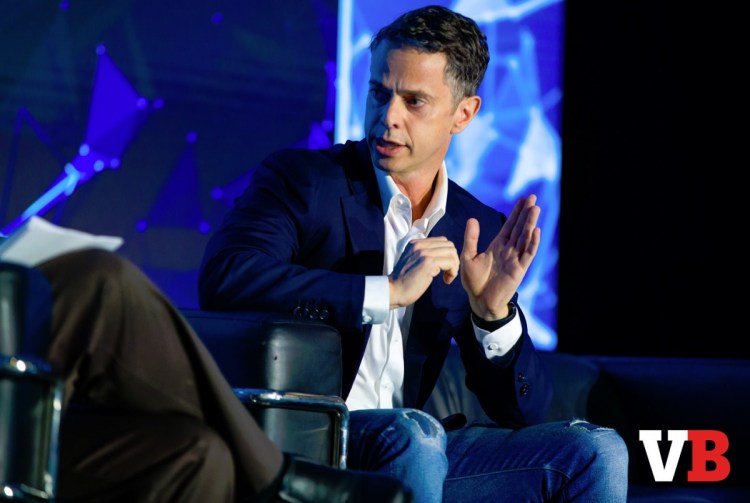Nexon CEO Owen Mahoney thinks that mobile game publishers lost sight of what was good for players when they turned up the crank on monetization in the past seven years. That helped mobile gaming rocket to the top of the entire industry, growing to $46 billion in 2017, but it also soured a lot of players on excessive monetization practices.
Mahoney is working with developers like Cliff Bleszinski (head of Boss Key Productions, maker of LawBreakers) and others to make games with fun gameplay and live operations that serve players long after a game has shipped. Nexon is in search of more games like the free-to-play title Dungeon Fighter Online, a multiplayer PC beat-’em-up game which has generated more than $8 billion in revenue in the past decade. (That’s more than the box office receipts for the Star Wars movies over time, Mahoney noted). And Mahoney wants game developers to lose their Hollywood envy and focus on games with unforgettable gameplay.
In Nexon’s most recent quarter, games such as Dungeon Fighter and Maple Story are generating more money than ever, and Mahoney talked with us to explain why.
Here’s an edited transcript of our interview.

Above: LawBreakers in action.
GamesBeat: What do you think of ideas like applying the Moneyball ideas, or advanced analytics and extracting lessons from big data, to games?
Mahoney: My take is that we went through these five to seven very bad years in the games business. That was a function of people looking at surface stuff in games. When the topic of Moneyball came up, to use that analogy, it was really about saying, “We’re going to use analytics to find out who the biggest moneymakers are and maximize those. We’re going to turn the crank on monetization as hard as we can.”
Thank goodness, the game-makers are slowly but surely taking back the games industry for players and for developers, which is exactly what it should be. We certainly believe heavily in this, and some other companies have driven the way. There’s a newfound respect for thinking deeply about what games are about at their core. Companies like us around the world have shown that if you think of games as games, rather than as some method for monetizing a generic user, it does better.
Now, to use the Moneyball analogy again, we’re talking about stuff like what you were talking about – advanced analytics to find out about influential people in the game and why they matter. Or to think about powering new and interesting concepts of what games can and should be, rather than powering ways of thinking about lifetime value (LTV) versus (effective cost per install) ECPI, which at its core is not a very sophisticated thought process. It’s just straight math.
That sounds very abstract, but the main thing I think about—this all gets informed by our core understanding of what games are and why we play games. If you keep going back to those fundamentals, over time you’re going to have much more success.

Above: Dungeon Fighter
GamesBeat: Is that mostly Dungeon Fighter and MapleStory making these contributions?
Mahoney: Dungeon Fighter has continued to do extremely well. It appears that we’re the number one PC game in China again. We’ve been somewhere in the top three, but I think we’re back to the number one spot. MapleStory continues to be very strong. When you look back five years, the biggest question we got from outsiders was, “When do these two games go away?” And they’ve been doing the exact opposite.
It shows a number of things. One is our teams are working very hard at live game operations and live game development, because they believe so strongly in developing this long-term relationship with customers. They’re dedicated to this process. In many companies it tends to be an afterthought. “Oh, wow, we can make a game grow for a while.” What I love about the Nexon teams is they’re dedicated to that as a core of what they do.
It’s other games as well, though. FIFA Online has been doing very well, through our partnership with EA, and some other less well-known games. If you look at a game in America we’ve talked about before, which is DomiNations, the retention numbers are wonderful on that game. The stability has been terrific. There’s a variety of different games that all prove out the same thing in different regions.
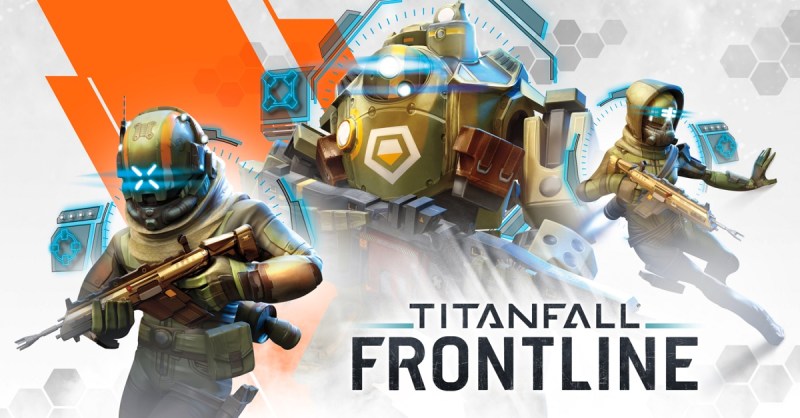
Above: Titanfall Frontline is a new mobile game from Nexon, Respawn, and Particle City.
GamesBeat: I wonder how much you benefit from a greater maturity of your audience. The South Koreans, the Chinese … they seem to understand digital economies well. Blockchain seems to do well there. People are willing to pick up this new kind of currency and spend it. You have a more receptive market in a lot of ways, to innovative thinking on the digital economy.
Mahoney: It might be hard to get a receptive ear to this topic when we’re sitting here in San Francisco, but I would respectfully posit that places like Korea and China are some of the most forward-thinking and advanced areas in the world when it comes to topics of virtual politics, virtual sociology, virtual currency. Free-to-play was invented in Korea by Nexon. The first graphic MMORPG was invented in [South] Korea by Nexon. That was in the ‘90s, 20 years ago.
This was in the days of packaged-goods games. Online was still so far away. But they were very early to fast and cheap broadband. There was this explosion of thinking. They had no existing industry to worry about. There was no channel, no boxed product. It was all online right away.
For some things you look to the San Francisco bay area for the forward thinkers in technology. Whatever’s happening here will happen a year or two years or five years later somewhere else in the world. You mentioned Moneyball. I was speaking to some investors last quarter. Sometimes I feel like it’s 2002 over again when I’m talking to investors, because we’re a company with a very international footprint, but we don’t look like a lot of other game companies are supposed to look to a western audience. Our games look a little different. Kind of like Moneyball, you have guys who look like they should be hitting home runs, and then you have the guy who looks out of shape, but consistently gets on base. It turns out that getting on base is what wins games, no matter how you get there.
What fascinates me, and what makes the game industry so interesting—oftentimes the stuff we talk about and what seems so interesting is actually not what players are really doing and where value really comes from. We do some things well and some things not so well, but the thing we do better than almost anyone in the world is make a game last and grow for a long time. Just looking at our P&L and that of a few other people in the industry—you think about it for 30 seconds, you realize this is one of the most important topics in video games. Some other companies are starting to talk about it now, in the west. They’ve seen how powerful this idea of longevity is.
Strictly from a player’s perspective, a game can get a lot cooler over time because it has been around for a while. They can age like wine. The more you know it, the more you study it, the better it is, the more interesting it gets all the time.
GamesBeat: It almost seems like the audience needs to be taught this, to learn it. If they’ve been playing games like this for decades elsewhere, they’ve learned it already. They’re open to the idea of playing a game for the long term.
Mahoney: Look at Riot. When League of Legends launched, nobody was thinking about League of Legends. Everybody was thinking about Facebook games. We got asked all the time, “What’s your Facebook strategy?” Our view was, we had none, because it wasn’t an area where we thought we could make a business and make a great value proposition for the user.
Riot has gone through a very similar experience to some of our games. They were tracking several years behind, but it’s a similar experience around the world for them. The game got better. The user base got bigger and more interesting. It just gradually builds up over time. Early on it didn’t look sexy at all. It was very retro in a lot of ways. But in fact it was incredibly forward thinking. We’ve been talking about this for years because we’ve been seeing this in advanced markets like Korea and China, but it’s come later to western markets.

Above: MapleStory
GamesBeat: Some designers think you should change an annualized title as much as possible to keep the audience coming back. Call of Duty does that. This year’s game has to be bigger and more explosive than last year’s. But that doesn’t work in esports. In esports people have to relearn the game every year. The stars change. The top players come and go and don’t get traction. Counter-Strike turns out to be the better esport because it doesn’t change that drastically. It validates your point. Games that stick around can do better than games that start over totally reinvent themselves.
Mahoney: As of a quarter or two ago, Dungeon Fighter, as an example, had generated $8.7 billion in revenue, gross. The numbers are significantly higher since then. Compare that to $7.6 billion for the entire Star Wars movie franchise over 40 years. Dungeon Fighter is 10 years old. That’s an apples to apples comparison, box office versus gross revenue. That gives you a sense of scale. And if you look at the KPIs today, they’re getting stronger, not weaker. Retention is terrific.
What I find fascinating about this topic is, when you tell that to people who have this “game goes up, game goes down” model in their head, their only question is, “When does the game start going down?” That may not be the question at all. Imagine that. Maybe the model in their head is just wrong. It’s certainly wrong so far.
GamesBeat: It’s like asking when the NBA starts going down.
Mahoney: Exactly. Maybe the pattern recognition we’ve been taught over the years is part of a functionally different industry, almost. A game in the packaged-goods era, you’d make 90 percent of your money in the first two quarters after launch. Of course it goes up and down. Then we had Facebook games and early mobile games, with similar pattern matching. But there’s a whole class of games that just quietly get bigger as developers refine the game and focus on the quality of the live experience, making sure their users are highly engaged and keep coming back. That’s powered our business for all these years. We think that’s very powerful.
The problem with this, why a lot of people maybe don’t focus on it too much, is it’s actually really hard to do in practice. Not that many people can do it worldwide. It’s very foreign to traditional ways of game-making. Doing it well—I feel fortunate at Nexon, because we have a lot of people who are incredibly talented and dedicated to doing this, and it’s really hard to do. It’s hard to replicate. It’s also very hard to learn. It comes from a lot of trial and error. That’s a lot less sexy than making a new game with new graphics and a new technology basis. That’s probably a blocker to more people understanding this more broadly.
GamesBeat: We’re seeing more companies springing up like PlayFab that are trying to do live operations as a service, and other kinds of infrastructure. Maybe that helps the industry.
Mahoney: Not speaking for them directly, because we think that’s the right idea and we should be doing more of that in the industry—this type of thing comes from experience, direct experience on a game, and a deep understanding of what that game is all about. Where we’ve gotten it wrong in the past is to think that there are generalized lessons you learn that explain 100 percent of it. Maybe it can be true for 70 percent, but the remaining 30 percent, it’s really specific to the game. You have to be in the nitty-gritty to figure that out. It’s not so abstracted.
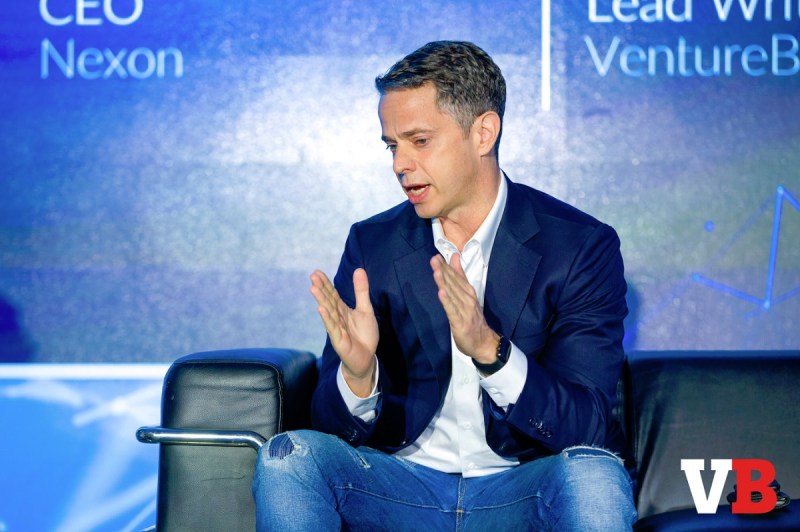
Above: Owen Mahoney, CEO of Nexon, at GamesBeat Summit 2017.
GamesBeat: Why do we keep seeing a pattern in player revolts. At some point, a company changes the game economy in some way, or it introduces new kinds of fees, and players feel like now they’re being exploited. They’ve been happy and loyal players. They’ve done their job of coming back every day. But now they feel like the developer is just trying to get more money out of them. I suppose that’s a matter of properly managing the relationship with your fans. But it seems to happen over and over again across different companies. Scopely had one a few weeks ago. Kabam had them across multiple games.
Mahoney: We’ve made every mistake that there is to make in this area, because we’ve been doing it for more than 20 years. You’re going to make mistakes on this topic. I take responsibility for the mistakes we’ve made. But the question, fundamentally, is what are you trying to do? What’s your true intention as a game-maker, and therefore what kind of relationship do you want to have with your customers?
What I mean by that—I’ll give you an example. I once had a conversation with a founder of a company, a western company, years ago, just at the dawn of Facebook games. He said, “Sure, I know about free-to-play games.” This was before there had ever been free-to-play games in the west. “That’s that strategy for monetization where you make more than you ever would have made off a packaged-goods game.” I said, “Well, no, I think it’s different than that.” They said, “No, I’ve studied this. I’ve been to Korea.”
The thing about free-to-play games is it didn’t start off as a strategy for monetization. It started off as truly making the game free, and then the idea is, you can buy a few items in the game if you want to make the experience better. It wasn’t strategic. What you want to do, in a truly multiplayer online game, on any device, is give a compelling experience for someone to come back over and over again. If you don’t have that, you don’t have a business at all.
The mistake that’s easy to make is to assume, “Oh, this user base will always be here, so I can crank up the monetization in order to achieve whatever near-term goals I have.” Which are often driven by venture capital – see growth, show growth. A lot of M&A is driven by rates of growth.
GamesBeat: When a game is growing, you can set monetization at a certain threshold to pay for your overhead. But when that growth changes, the game stops producing the income you thought was coming, and so now you have to consider changing the pricing in order to pay for that overhead in servers. Maybe that equation changes with the size of the audience over time, and that explains why companies get more draconian with their pricing policies.
Mahoney: Again, with the caveat that we’ve made every mistake that there is to make, what we’ve learned along the way and why we’re so focused on tying up with great developers and working hard on live operations and taking our knowledge around the world—the number one thing is longevity. You have no business unless a person is going to stay and keep coming back. In order to do that you have to give them an experience that’s better for them than all the other experiences they’ve got, and there are a lot of those in the entertainment business.
The companies that don’t focus on that have no sustainability. By definition they don’t have much business value. It may look like they have business value. A game company executive in the online games business, at any given time, might feel the temptation to crank up the monetization, which essentially means drawing a lot of revenue forward. It draws revenue forward because you may kill retention, and if you kill retention you have no future. It feels counterintuitive to people who don’t spend much time in the game.
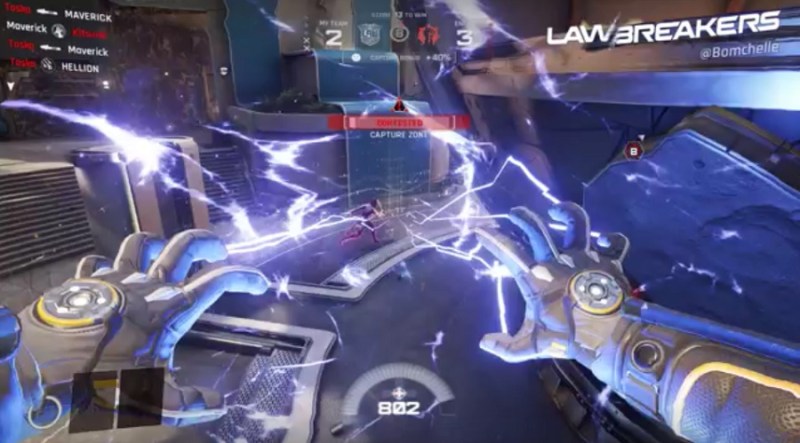
Above: You can electrify enemies, Palpatine style, in Lawbreakers
GamesBeat: LawBreakers just launched. I was wondering how that was going, and how it fits into these discussions.
Mahoney: Last week was a big week for us. We announced earnings, where we grew significantly in basically every region. It was our best Q2 ever. Number two, we launched Dark Avengers 3 in Korea two weeks ago, and that’s off to a great start. We launched LawBreakers. We launched Titanfall: Assault on mobile. We have more games in the pipeline in each of our key regions.
LawBreakers specifically—what we don’t know today is how we’ll do over the long term. But early returns are good. We have a user community responding very positively to the game. The debate you may have seen online, some people are talking about, “Does this look like Overwatch and how does this compare to Overwatch?” You spend 30 seconds in the game and you know it’s nothing like Overwatch, beyond being a first-person shooter.
GamesBeat: It’s No. 3 on Steam, I saw.
Mahoney: The most important thing is the reviews there are very good. That’s a reflection of the great work the development team did. We want to support teams like that, because we know over time that if we do that well, it’ll benefit us and benefit the gaming community. There need to be more developers like Boss Key and Cliff in the world, working and taking huge creative risks. LawBreakers really is a huge creative risk. I have enormous respect for him and his team that runs very deep in our organization. We want to do more of that.
Titanfall: Assault is another good example where we’re trying something that hasn’t really been tried heavily in the past. We think we have a terrific realtime strategy game on a mobile device that has a lot more depth than most mobile games. The team behind it is really strong. It’s the Particle City team that’s partly owned by Respawn. Titanfall is a great franchise. Gamers like me want to live in that world and take it with us in our pocket. We think it’s a compelling experience, and players seem to like it a lot.
GamesBeat: I played a few rounds of LawBreakers. It’s definitely a hard game. I’ve let my PC gaming skills atrophy a bit,
Mahoney: They’re very sincere about the “#skilledaf” thing. That’s been an underserved market for a long time. It’s a group of people that haven’t had something directed toward them. I kind of consider that a crime. But it’s not to everybody’s taste.
My advice would be, there are some very good tutorials. Play those. They’ve done a really good job of teaching people how to play a character. I also watch a lot of it on Twitch, because it’s pretty compelling viewing when you see somebody who’s playing well. It’s such a skill-based game, and it’s designed to be a skill-based game. You have to aim well. You have to avoid damage.
If we do our job well—we feel strongly that a couple of things have to happen. One, you have to have this core ability to make a game well and make a game last, which means you have to serve your community. We have this strong capability for doing this in several parts of the world. We’ve been working hard behind the scenes to increase that capability in other parts of the world, specifically in the west.
Then we’ve been working hard with what we consider some of the best developers in the world to combine that capability with their capability around making a really strong game, and supporting them in a way that—because they’re pushing the creative envelope, they may not find as much support as they’d like to have, but they’re moving the industry forward. We plan on taking more creative risks and supporting them in bigger ways than before. Those sorts of risks need a voice. There’s not enough of them.
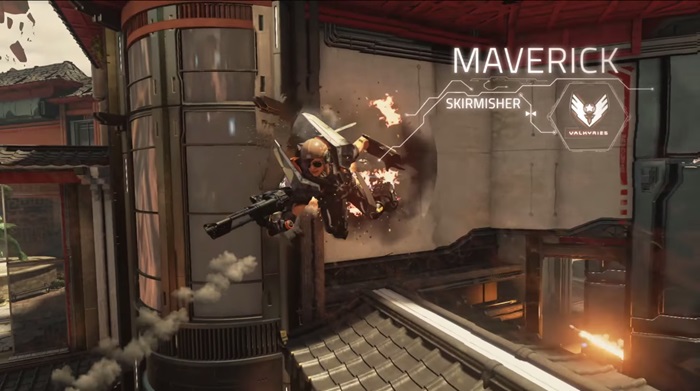
Above: LawBreakers
GamesBeat: Does getting good early results justify more investment, or is this such a long-term thing that that’s not a factor?
Mahoney: In online games, our theory is that it’s not a hit until it’s been growing for several years. This is not a short-term game. There are numerous good examples of monster hits today that were nothing for the first two years. Nobody paid attention to them. In the west an early example was Maple Story. It came from Korea, where it had a very similar pattern. In Korea it started off small and built up over time. League of Legends came on later. As we were talking about before, it impressed very few people until everyone saw what a great game it became over time. While everyone was looking at something else, it was quietly doing its thing.
This concept of a hit-driven business – “We have to have a hit!” – is not necessarily healthy all the time. Our view is, we have to take a long, committed view in each region if we want to have the kind of success we’ve had in our earlier regions, like Korea, China, and Japan.
Our business looks very complex, because under the hood it really is very complex in execution. But there are some core principles that we keep coming back to, that are really important. It sounds simple, but it’s easy to forget. Those are things like longevity – the idea that you launch a game and it’s just the beginning of your relationship, not the end. Quality and differentiation really do matter when you’re talking about new games. These are easy things to talk about, but they’re incredibly hard to do. It’s easy to get distracted by other things. But these strike me, as someone who’s been in the industry a long time now, as some of the core truths. We think there should be more companies pushing these ideas. We wish there were.
If you look at some other industries, like television—you grew up in the U.S., right, in the ‘70s and ‘80s? When I explain to people in their 30s the kind of junk TV we grew up on—like, look at YouTube and check out the Love Boat or Fantasy Island. These were awful shows. It probably explains some of why we have such a messed-up political situation now, because we all grew up on this junk food.
TV has gone through a revolution. Even five years ago, compared to today—we have Netflix, Amazon, and HBO coming out with an insane amount of wonderful content. The best actors never wanted to go to TV before. Same thing for screenwriters and directors. Now they all end up in TV first, and the big screen is an afterthought. It’s improved the whole TV industry.
That’s very possible in the games industry. You have people who are in a position to really make investments in games and support developers that way. Developers are creators. If they get support and people are willing to take creative risks, we’ll have a much healthier industry.
GamesBeat: Have you seen it in some of your games, like more persistent games?
Mahoney: In all games you see a variety of—when I was growing up playing arcade games, getting on the high score list was a big deal. That’s a proto version of self-expression. “I got my initials in the top five!” Ranking highly among my friends—it hasn’t really been exploited or delved into much at all, but it’s an interesting idea. You get snippets here and there, but every time you get it, it seems pretty compelling.
